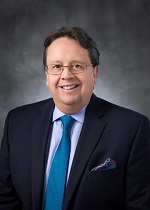LNG exports from the US—what role will the new Administration play?
Martin HoustonVice Chairman, Tellurian.
The APPEA Journal 57(3) - https://doi.org/10.1071/AJ16270
Published: 29 May 2017
Abstract
The LNG industry today is uncertain and looking for a new business model. Even willing buyers and sellers find it hard to agree a long-term sales and purchase construct that is durable and unlikely to embarrass in the future. The reasons are clear: the world is likely to be more long than short LNG for a few years and the spot price of LNG has swung wildly between a steep discount and significant premium to long-term, oil indexed prices. HH-indexed LNG volumes have only just begun to flow and yet in the future, for several reasons, this new price construct could send the wrong price signals to the global market at a time when oil prices remain low, a condition it is hard to see changing.
Coupled with this, the migration to an increasingly liquid and spot LNG market discourages new investment and at the same time hobbles potential new investment with a greater financing challenge. Doing nothing has become the ultimate defensive move but should not be mistaken for a strategy.
As we look to the new supplies, we should separate the signal from the noise. Indisputably, the third wave (post-2021) of US projects will provide the cheapest unit construction costs for contemporary global greenfield LNG and will do so backed by trillions of cubic feet of cheap US shale gas. These will combine to provide long-term, low priced LNG with far lower expected volatility for the global markets. This will happen against the backdrop of a new US administration under the leadership of a President with a doctrine of putting America more firmly on the global stage.
The question is, will the early, somewhat contradictory messages from the White House, which on the positive side include the identification of priority projects, a drive toward reduced bureaucracy and balancing the trade deficit with international trade partners and on the negative side call for greater local content and border taxes, lead to a better environment for US projects?
My comments will address these contradictions, but with the firm intention to leave no doubt that the new US administration is open for business and that we see a return to firm, yet sensible regulation as a major positive for our fast-growing US LNG industry.

Following his studies which commenced with a bachelor’s degree in geology from Newcastle University in 1979 and then a petroleum geology master’s degree from Imperial College London in 1983, Martin was employed by BG Group plc and its predecessor companies, retiring after 30 years in February 2014 as Chief Operating Officer and a member of the board of directors. During his international career, Martin has conducted business in over 40 countries, and has lived in Trinidad and Tobago, Singapore, the Philippines and the USA. He has established a strong external reputation in the international gas business and is largely credited with being the key architect of BG Group’s world class LNG business. In recognition of this, in 2011 he was the first recipient of the CWC LNG executive of the year award. He was previously a non-executive director of Severn Trent plc, an integrated water and environmental company, a former director of SIGTTO, the international organization representing gas tanker and gas terminal operators worldwide, and a former GIIGNL regional vice-president for the Americas. In January 2014, he was appointed as a non-executive director of BUPA, an international healthcare group. In June 2014, he was appointed a non-executive director of CCC Energy. In January 2015, he was appointed as the chairman of TPH International. In June 2016, he was appointed as Senior Advisor for Miro Advisors. Martin sits on the National Petroleum Council of the United States and is a Fellow of the Geological Society of London. He sits on the Development Committee of the Royal Opera House of London. |


